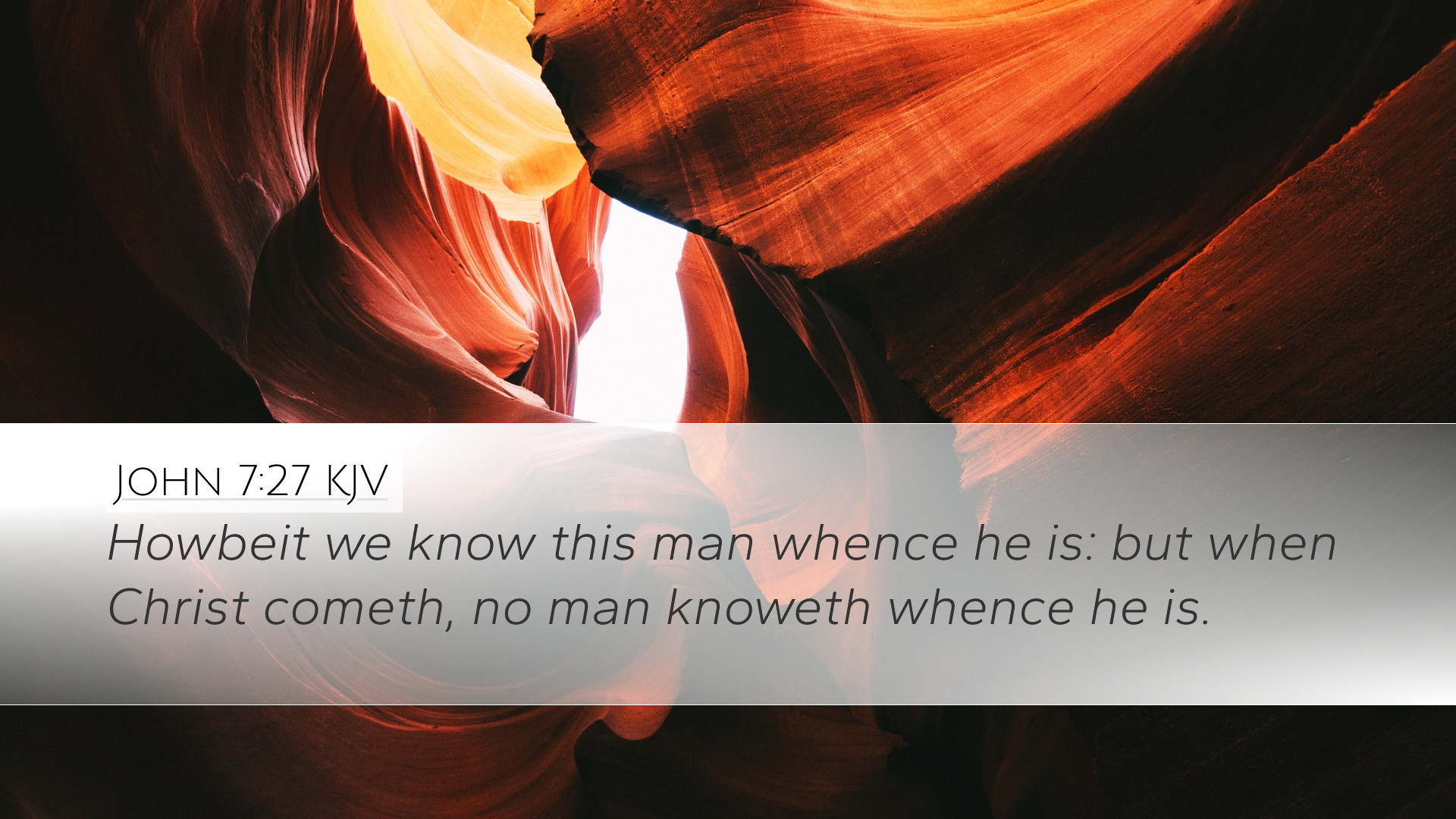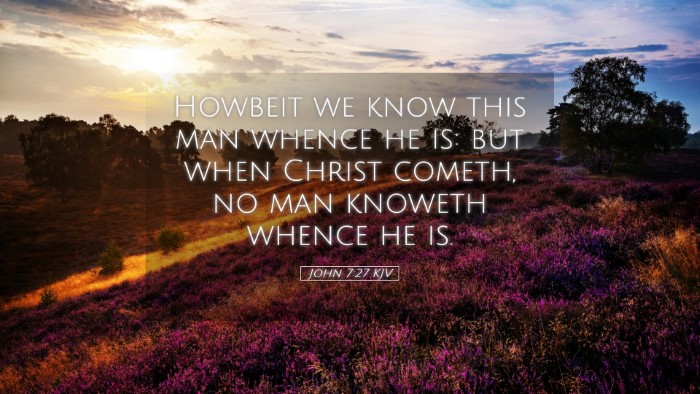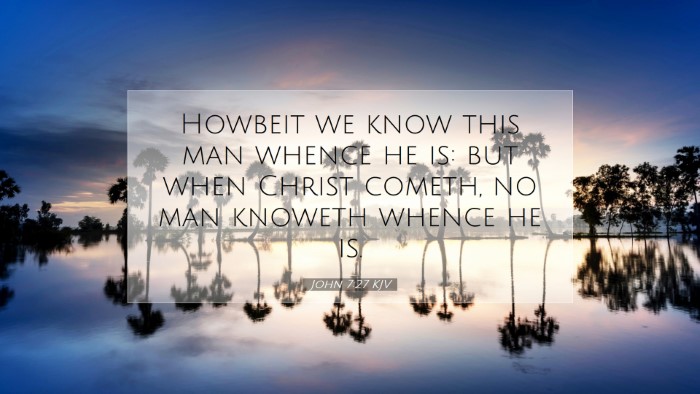Commentary on John 7:27
In John 7:27, the verse reads: "But we know where this man is from; when the Messiah comes, no one will know where he is from." This statement reflects a skepticism about the origin of Jesus, revealing the tension between popular understanding and divine truth.
Background and Context
This verse occurs during the Feast of Tabernacles when Jesus is teaching in the temple. The Jews were debating the identity of Jesus, and his origins were a significant point of contention. The expectations regarding the Messiah were deeply rooted in the prophetic writings, which had led many to anticipate a royal figure arising from Bethlehem, not someone from Galilee.
Interpretative Insights
-
Matthew Henry's Perspective:
Henry emphasizes the ignorance of the people regarding the true nature of the Messiah. He points out that while they believed they knew Jesus's earthly origins—Nazareth—this knowledge was misleading. The Messiah's divine nature transcends human understanding, and many are blind to the truth represented in Jesus. Henry asserts that true knowledge of Christ comes through revelation, not through mere human reasoning.
-
Albert Barnes' Commentary:
Barnes notes the direct contradiction between the people's beliefs and the truth of Jesus's divine origin. He highlights that the prophecy concerning the Messiah did not provide a clear geographical indicator of His origin, which leads to confusion. Barnes argues that this illustrates the profound limitations of human understanding when attempting to perceive divine matters. He encourages readers to comprehend Christ's multifaceted nature that exists both in the flesh and in divinity.
-
Adam Clarke's Analysis:
Clarke elaborates on the cultural implications of the statement made by the people in the verse. He discusses how the common perception of the Messiah was influenced by prevailing traditions and misconceptions. Clarke also underscores the prophetic declarations of Jesus's origins, specifically referencing Isaiah 11:1 and Micah 5:2, which indicate a more profound understanding of the Messiah's lineage, highlighting discrepancies between human expectations and divine fulfillment.
Theological Implications
The assertion that no one knows the origins of the Messiah reveals a deeper theological truth regarding the nature of revelation. There is a distinction between knowledge based on observation and knowledge grounded in divine revelation.
The verse serves as a reminder that the understanding of Christ should not be limited by preconceived notions but rather grounded in the teachings of Scripture. Faith is encouraged to transcend skepticism and seek a deeper relationship with the Divine.
Applications for Today
For pastors and theologians, this verse can serve as a reminder to challenge the misconceptions about Jesus's identity that may exist within congregations. It prompts an exploration of how cultural understanding can complicate theological truths.
Students of the Bible can use this verse to confront personal biases about the Messiah and deepen their study of the entirety of Scripture. Engaging with historical and cultural contexts enriches the understanding of the Word.
This commentary encourages reflection on individual beliefs and assumptions about Jesus. In challenging these perspectives, believers can grow in their faith and embrace the mystery of Christ's nature.
Conclusion
John 7:27 serves as a powerful reminder of the contrasts that often arise in faith discussions. It challenges us to look beyond our understanding and embrace the truth of Jesus as the Messiah. Through the combined insights of Matthew Henry, Albert Barnes, and Adam Clarke, we can appreciate the depth and complexity of this Biblical verse, allowing it to lead us closer to God.


